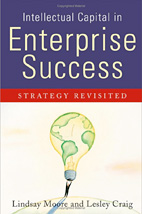A six-point synopsis of the theory of branding.
Brand Strategy
"Brand strategy" involves all the strategic documents that are used in the creation, development and management of a brand for an enterprise, a product, a service, or an idea. Brand strategy involves identifying what a brand will stand for, the position it will own in the marketplace, its architecture, and the marketing strategy that will be used to build it.
A Theme Park for Dracula?
A Theme Park for Dracula? Entertainment Branding. During the early 1990s, with the success of Walt Disney World in Florida, it seemed that theme parks were the brand building tool of choice for any Brand which could offer entertainment and rich media. Driven by the need to build a post-communist economy, Romania has moderated its previous rejection of Dracula as a vampire and shifted its focus to leveraging the Transylvanian myth for economic gain.
Brand Development
Smaller companies, with local and regional markets, often accept the dominance of large, national brands in their marketplace. All too often they assume that good branding and targeted marketing is either too complex or too expensive to be within their reach.
Why Do We Need a Brand Strategy?
With the dawn, during the mid 1990s, of the Age of Intellectual Capital, came the realization that the real wealth in the modern enterprise is located in the intangible assets of that enterprise and not in the “traditional (tangible) assets” such as real estate, plant, equipment, inventory, cash, and the like.
It’s Time for Brands in Every Boardroom (PDF)
The brand has become a strategic business concern for every senior corporate executive and board member. With increased global competition, it has become essential for leaders in every industry sector, from commodities to consumers packaged goods, to understand the theory and practice of the successful deployment of brands.
The New Brand Strategy at Philip Morris
Philip Morris Companies have spent over $200 million in corporate-image advertising over the last two years, designed to improve the image of “Philip Morris.” Nevertheless, “Philip Morris” is still viewed as a tobacco company.


 As the knowledge-based economy expands, the companies and individuals that possess intangible intellectual assets, such as intellectual property, will need specialized expertise, strategic thinking, legal experience, and the wisdom necessary to manage intellectual assets.
As the knowledge-based economy expands, the companies and individuals that possess intangible intellectual assets, such as intellectual property, will need specialized expertise, strategic thinking, legal experience, and the wisdom necessary to manage intellectual assets.